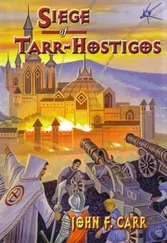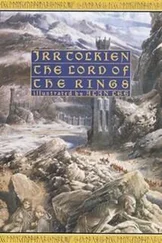For the Black Spider-man knew that he had not even the remotest chance of stealing the horse and escaping undetected. That might be achieved by an army of electronic experts and technicians, but C.W., as always, was one man, alone. For him, it had to be the hard way.
His sole aids were his pantherish strength, his astonishing nerve, his natural ferocity, and his boundless contempt for danger.
He had one other (for his chosen trade) admirable quality: he was always self-contained, and rarely dealt in violence. Violence against things, or obstacles – yes. Against locks, doors, safes, secur ity devices; but hardly ever against people. C.W. valued people – even the truly rich – almost as much as he valued the beautiful creations they owned.
Drawing breath again, he let it out explosively, and launched himself towards the centre of the room.
When you are baptized Clarence Wilkins Whitlock and your schoolfriends ask you which name you want them to call you by and you say ‘Neither’, then you might have to fight to protect your nominal integrity. Clarence Wilkins Whitlock reached this small crisis early on in life, and established his right to be known simply as ‘C.W.’ over a bloody, but gratifyingly brief, period in one of the less favoured districts of Tallahassee, Florida.
C.W. came from the wrong side of the tracks before the tracks were even laid. He had an innate appreciation of the natural beauty of that part of Northern Florida where Tallahassee sits on its perch high above the sea, in a nest of rolling hills, lakes and streams. When C. W. could get away, this was where he liked to be, sitting by – or more likely in – the little tumbling brooks, sunning himself on the quiet uplands, and climbing the giant magnolia trees and majestic oaks, hung in season with Spanish moss.
For C.W., home was always the haven, not of peace, but of resentment; an island of poverty and bitterness in a sea of plenty. Above all, it was the place where his racism (and C.W. would accept that he qualified as a black racist) was nurtured. His youth had been the time of the awakening of black race consciousness, and that false dawn had a magnetic attraction for him. He did not actively loathe whites, but he was deeply afraid of them; and fear, he decided, was a more powerful emotion altogether than hate.
Only later, when he was beginning to establish himself to an unarguable degree, did C.W. discover that his fear of whites had turned to cautious regard, and then to grudging awareness, and finally to acceptance of them as a necessary aspect of his society. For without them, who would be the negro’s negro? The Jew, perhaps? Polacks? Spics? Dagos? Wops?
Juvenile crime was a way of life for C.W. Whitlock before any alternative path had even been considered. And when, as he grew older, the question arose in his mind of a career, the choice – as it had been for Sabrina Carver – was easy.
For apart from a cool head crowning his lithe body, C.W. possessed one priceless accomplishment: he could climb anything, by day or night, any structure that he had ever been asked to climb, or been forced to. Some in his vicious circle of cronies dubbed him ‘Monkey’, and quickly learned that C.W. did not take kindly to nick-names. Later he secretly revelled in being known to the American Underworld as ‘The Black Spider-man’: that, he felt, was a fitting tribute to an impressive talent.
But in the early days, he concentrated on going from strength to strength – or, more properly, from height to height. He devised ever more complex and daring pathways to robbery, and his gangster acquaintances were not surprised when he quickly outgrew his need for the basic talents of thuggery which were the limits of their collective repertoire.
He kept one friend, and occasional accomplice, Pawnee Michaels, a full-blooded black Red Indian, for God’s sake. He went through Vietnam with Pawnee, and they travelled the road of crime together. But Pawnee was a liability, and knew it. Unadept and clumsy, he tried one day his own caper. C.W watched him fall from the City Bank in Trenton, New Jersey, and turned away because there could be no percentage in claiming what was left of the poor, smashed body.
Since then, he had worked alone. Like Sabrina Carver, he migrated to New York, where the buildings were taller and more challenging. Again like her, he fenced through Lorenz van Beck …
C.W. leapt the light-beams and glided between the statues, betraying no sign of his presence.
He landed on his toes by the central plinth, and froze, controlling his body, steeling his reactions. Then he plunged both hands into the cat’s-cradle of light, and seized the T’ang horse.
The infernal clangour of the alarms cut through the quiet of the building like a bolt of lightning. The security chief jerked awake and smashed the clock from his bedside table. He swore and reached for the telephone.
The lobby guards raced efficiently through their drill, the one haring for the elevator, and the other double-locking the front doors, then returning to bring down the three unused elevators. When they reached the ground floor, they would be immobilized.
He gazed hypnotically as the floor indicator of the occupied lift raced up to thirty-eight. The phone rang. He palmed the receiver and said ‘Check. Check. Right.’ Then he slammed it back on its rest, and crossed to where the three remaining elevators were settling, their doors opening in sequence.
The guard snapped off the operating switches to all three, and grinned. The bastard was trapped. Wherever he was hiding, he could not leave the building.
His security chief paused long enough to drag on his underpants, for he normally slept only in his gun. His apartment was immediately below the exhibition suite, and he made the stairwell in seven seconds.
There was no one on the stairs, either way. Nobody could have been quick enough to get clear, so the guy had still to be up there.
Security chief and guard entered the suite simultaneously from different doors, and came within an ace of killing each other. But they were professionals, with quicksilver reactions.
The chief muttered ‘Shit!’ when he saw the empty podium of the T’ang Flying Horse, and his guard shouted ‘There!’ as he spotted the big hole in the window.
They sprinted over to it, stuck their heads out, and looked down. Down was where the thief must be, should have been … but wasn’t. The security floodlights had been activated by the alarms, and the whole front of the building was clearly visible. They doubted whether even a fly could pass unnoticed on the glass palace.
So it must be up. And both men fired at the trundling gondola, which even now was within a few yards of the top.
‘Get the roof!’ the chief yelled. ‘I’ll send Tommy up, and make sure the police chopper’s airborne.’ He leaned and fired again, and saw the bullets hit the metal frame, but could not be sure that they had penetrated.
C.W. flattened himself against the side of the gondola, and felt it judder to a halt as it reached the end of its track. He had been counting the bullets, and there was still the last of an estimated six to come. But he could delay his flight no longer.
He threw his body frantically upwards, and his questing fingers closed on the rough granite parapet which topped the building. Through the thin fabric of his gloves, he felt tiny chips of stone digging into his finger-tips. His toes clamped on to the smooth surface of the facade like limpets. The last shot came, and ploughed into the granite an inch away from his left hand. Two fingernails split as he tensed his whole frame in mental and physical anguish.
The little cradle bucked under his feet. He gulped another lungful of air and made a last supreme effort to haul himself over the parapet. With a throat-wrenching grunt, he landed on the roof, and raced for the wooden shed housing the head of the ventilation shaft and air-conditioning central station. He knew it could be only a matter of seconds before the security guards got someone up there to seek him out, and he had much to do.
Читать дальше












